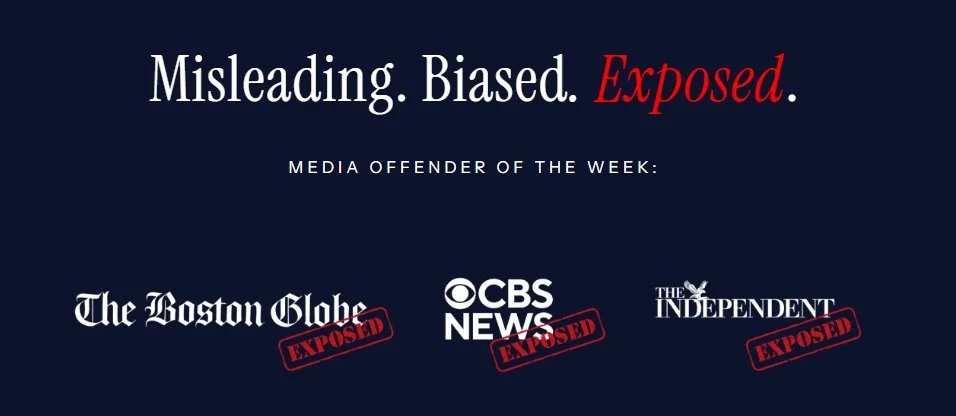Zohran Mamdani and the Tri Factor: Politics, Progressiveness, and Religion
Zohran Kwame Mamdani’s ascent from neighborhood housing counselor to mayor elect of New York City offers a rare laboratory for examining how politics, progressiveness, and religion can interact rather than collide. His public identity is not an awkward layering of roles. It is a coherent framework that draws upon Islamic ethical sources, progressive commitments to inclusion and material justice, and the psychological skills required to lead in a plural society. Read through these lenses, Mamdani is not only a case study in coalition politics. He is a test of whether a moral vocabulary rooted in faith can energize a progressive agenda while respecting secular norms, minority rights, and evidence based policy.
This essay argues that Mamdani’s trajectory shows the tri factor working in mutually reinforcing ways. First, Islamic ethics offer a moral grammar that frames progressive policy as a duty to justice, dignity, and mercy. Second, political psychology helps explain how his integrated identity converts potential stereotype threat into what researchers call identity integration, which in turn strengthens trust and coalition building. Third, practical politics is not erased by ethics or identity. It is structured by them. The result is a model where faith anchors values, progressivism translates those values into inclusive policy, and psychological insight helps a leader mobilize diverse groups without flattening difference.
Moral and Religious Grounding: Justice, Dignity, Mercy
Islamic moral thought provides Mamdani with a set of stable reference points. Verses that call believers to stand firmly for justice, to honor the dignity of the children of Adam, and to consult one another in public affairs are not abstract citations in his narrative. They organize priority setting. In his rhetoric and record, care for tenants, immigrants, workers, and queer or trans neighbors is framed as a response to oppression and as an affirmation of human worth. This vocabulary resists two temptations that often trap religious language in public life. It resists the temptation to collapse policy into dogma, and it resists the temptation to privatize faith until it becomes politically inert.
The moral frame matters for two reasons. First, it binds together issues that are often siloed. A rent freeze, a pilot of fare free buses, or a public investment in services appear to belong in separate policy folders. Through the lens of justice as fairness to the vulnerable, these become facets of a single obligation. Second, it forms a bridge to people who do not share all policy preferences but who recognize a familiar moral logic. Voters who want leaders to explain not only what they will do but why they feel compelled to do it can understand a duty based rationale grounded in mercy and dignity. That does not resolve disagreement, but it makes disagreement legible and therefore easier to negotiate.
Crucially, Mamdani’s use of Islamic sources emphasizes widely shared ends rather than sectarian markers. Mercy, justice, and human dignity are not owned by one tradition. Islamic law and ethics have internal resources for pluralism, including the principle that there is no compulsion in religion and long traditions of consultative governance. When a Muslim public official invokes those resources to defend inclusive policies, he demonstrates that faith and equal citizenship are not zero sum. This is an ethical position and also a strategic one. It uses a moral language that can resonate across religious and secular lines without asking anyone to submit to a creed.
Progressiveness as Translation: From Moral Imperatives to Policy Design
If religious ethics supply the why, progressiveness supplies the how. Contemporary progressive politics aims to expand material security and civic belonging. It does so through redistribution, public goods, equal protection, and inclusion. Mamdani’s signature proposals sit squarely in this tradition. The details are important, yet the pattern matters more. The policies express a commitment to reduce avoidable suffering that flows from market failures, discriminatory rules, or gaps in public provision.
The bridge from moral imperative to policy instrument is not automatic. It requires translation. Consider LGBTQ and especially trans rights, an arena where some expect a clash between traditional religion and progressive inclusion. Mamdani’s record flips that script by locating trans dignity within a universalist ethic. Protection from harassment, legal recognition, access to health care, and sanctuary commitments are defended as extensions of a single norm. All persons bear inviolable worth and are entitled to equal regard. That claim is not exclusively religious. It is political and legal. Yet by connecting it to an Islamic ethic of honoring human dignity, Mamdani shows that a believer can champion minority protections not in spite of faith but through faith informed conscience.
Policy translation also involves evidence and institutional design. An analyse of Mamdani by the Daisy Chain spotlights knowledge as a value in Islam, which supports a culture of learning in public office. In practice, that means pairing bold goals with pilots, metrics, and iteration. Free buses begin as a pilot to test distributional impacts and rider behavior. Housing protections are paired with legal supports and data on eviction patterns. A moral frame asks what justice requires. A progressive policy frame asks what works and who benefits. Together they allow a leader to be principled and empirical at once.
Psychology and Political Psychology: Identity, Trust, and Mobilization
The political arena is a theater of perception as much as it is a contest of programs. Voters and commentators project assumptions onto candidates with salient identities. Muslim politicians often face the burden of stereotype threat, which is the risk that they will be perceived through a lens that expects illiberalism, misogyny, or homophobia. Political psychology suggests two broad responses. A candidate can minimize or mask the identity that triggers bias, or a candidate can integrate identities publicly and thus disrupt the stereotype.
Mamdani has chosen integration. He is unapologetically Muslim and explicitly progressive. He fasts in public during Ramadan while endorsing protections for trans New Yorkers. He visits synagogues to address antisemitism while advocating for Palestinian rights. This is not a clever triangulation. It is an identity strategy that signals coherence. Voters respond to coherence because it reduces cognitive dissonance. When the same person speaks consistently about justice across domains that are often kept separate, the audience can update beliefs about what a Muslim politician might believe. This reduces the power of crude heuristics and builds trust through pattern recognition.
Trust also derives from what social psychologists call moral conviction combined with openness. Moral conviction without openness can look rigid. Openness without conviction can look slippery. Mamdani’s blend is to state ends clearly, then consult widely on means. That is the shura model applied to city politics. It satisfies two psychological needs among citizens. People want leaders whose values are legible and stable, and they want leaders who treat them as partners in problem solving. The resulting political style is dialogic, not didactic. This is particularly effective in multiethnic settings where many communities carry memories of marginalization.
The role model effect deserves special attention. Visibility of minority leaders raises political efficacy among members of that minority and can broaden the moral imagination of the majority. In the case of a Muslim, African, South Asian, and immigrant background candidate who embraces progressive commitments, the demonstration effect operates on several fronts at once. Young Muslim Americans can infer that they need not choose between faith and public service. Progressive coalitions can infer that explicit religious language need not signal exclusion. Skeptical observers can infer that coalition partners who differ on theology can still unite around rights and material well being. Representation is not a substitute for policy, yet it is a catalyst for engagement and a restraint on dehumanization.
Managing Tensions: Secularism, Pluralism, and Administrative Reality
No ethical frame removes conflict from politics. The question is how a leader navigates inevitable tensions. Three stand out.
First, the boundary between a faith based ethic and a secular public sphere requires discipline. Mamdani’s approach, appears to argue from public reasons that others can accept even if they do not share his faith. He can say that all persons possess dignity, that the state must not privilege a sect, and that laws should protect equal status in civic life. He can also disclose the religious motives that animate his commitment to those public reasons. That balance respects secularism as a political settlement that allows many beliefs to coexist under law.
Second, inclusion requires attention to within group diversity. Muslim communities in New York are not ideologically uniform. Some will applaud sanctuary policies for trans people. Others will dissent. Here the psychological task is to maintain a moral core while inviting dissenters to evaluate outcomes that benefit their own families, such as affordable housing, accessible transit, and safe streets that reduce violence against all. Leaders who expand the circle of belonging through material gains can soften opposition to symbolic controversies. This is not a trade of rights for roads. It is a recognition that cross cutting benefits sustain coalitions during value conflict.
Third, progressive agendas face administrative and fiscal constraints. A moral narrative can become politically fragile if it ignores execution risk. The more Mamdani sources his legitimacy from justice claims, the more he must show that public institutions can deliver. That demands technocratic competence, credible timelines, and iterative fixes. The same religious ethic that prizes knowledge and consultation should therefore justify investments in data capacity, procurement reform, and professionalization of service delivery. In other words, mercy for the vulnerable travels through management as much as through speeches.
Counterarguments and Rejoinders
Critics raise three common concerns. Each merits a sober reply.
One concern holds that progressive commitments on gender and sexuality contradict Islamic tradition. The rejoinder points to the diversity of Islamic jurisprudence, the centrality of mercy and protection from harm, and the historic practice of public interest reasoning. A Muslim politician is not a mufti. He is a steward of a secular city where many traditions live together. In that role, he can prioritize equal protection without asking religious bodies to revise doctrine. He can protect the rights of religious minorities and sexual minorities together, since the state’s task is civic peace through equal status.
A second concern claims that identity politics distracts from class politics. The rejoinder clarifies that economic harms disproportionately burden minorities, immigrants, women, and queer communities. Centering those groups is not a detour from class. It is a more accurate picture of who bears the costs of inequality. The coalition that emerges is larger and more resilient because it ties abstract economic justice to the lived experiences of neighbors. The psychology of recognition matters here. People mobilize when they feel seen.
A third concern argues that moral language divides secular publics. The rejoinder is to translate values into public reasons and measurable results. If the bus becomes free, the rent becomes more secure, and the clinic becomes accessible, then the legitimacy of the policy rests on outcomes that citizens can evaluate without reference to scripture. The moral narrative motivates the leader and many supporters. The public rationale and the results bind the wider city.
The Tri Factor in Practice: A Coherent Leadership Model
Mamdani’s case illustrates how the tri factor can function as a model rather than a personality cult.
Religion supplies moral clarity. It reminds a leader that governance is not only about managing scarcity, it is about honoring the image of the human being as deserving of shelter, movement, education, and safety. It humbles the officeholder by situating him under higher principles that forbid cruelty and partiality.
Progressiveness supplies institutional imagination. It invites policies that remove structural barriers and that treat essential goods as public rather than private luxuries. It aligns with social scientific tools that can test which designs actually lift burdens from the poor and the marginalized.
Psychology and political psychology supply strategies of persuasion and belonging. They help a leader integrate identities in public, reduce fear, and form bridges between communities that rarely share space. They teach that voters value coherence, that identity cues can be converted from liabilities into trust signals, and that representation can normalize diversity without demanding uniformity.
This is not an easy model. It requires rhetorical precision, empathy, and administrative rigor. It also invites scrutiny, because moral language raises expectations. Yet the alternative is a politics that refuses to speak about meaning, that treats human beings as consumers of services rather than bearers of dignity. In a city that contains multitudes, an integrated moral vocabulary can anchor a shared future.
Simply Put: From Symbol to Structure
Zohran Mamdani’s story is not proof that faith and progressivism will always align, nor that identity integration will always beat prejudice. It is evidence that a leader can use religious ethics to orient inclusive policy, and can use psychological insight to build trust across difference. The tri factor works when each part respects the others. Religion does not dictate law, but it informs conscience. Progressiveness does not flatten culture, but it focuses on reducing unjust burdens. Political psychology does not manipulate citizens, but it clarifies how identity and trust shape democratic consent.
For a new generation of Muslim and non Muslim public servants, the lesson is practical. Speak clearly about the moral ends of politics. Translate those ends into policies that deliver tangible gains for those at the margins. Treat identity not as a performance but as a resource for empathy and coalition. Consult widely, test rigorously, correct quickly. If that sounds like an ethic of justice joined to a craft of governance, that is because the best of politics is always both.
In the end, the measure of this model will not be its rhetoric. It will be the daily experience of New Yorkers who find the bus easier to board, the rent less likely to spike, the clinic open when they need care, and the street free of harassment. When those goods arrive for those who have waited longest, the city will have taken a moral step forward. The story that made that step possible will include an immigrant son of Kampala and Queens, a believer who prays and a progressive who legislates, a leader who turned a supposed contradiction into a working coalition. That story will not close the book on conflict. It will mark a page where politics returned to first principles and then got to work.
References
Mamdani: A Progressive Muslim Role Model - The Daisy Chain - https://www.the-daisy-chain.com/us-politics/mamdani-a-progressive-muslim-role-model
Aquino, K., & Reed, A. (2002). The self-importance of moral identity. Journal of Personality and Social Psychology, 83(6), 1423–1440. https://doi.org/10.1037/0022-3514.83.6.1423
Decety, J., & Cowell, J. M. (2014). The complex relation between morality and empathy. Trends in Cognitive Sciences, 18(7), 337–339. https://doi.org/10.1016/j.tics.2014.04.008
Haidt, J. (2012). The righteous mind: Why good people are divided by politics and religion. Vintage.
Iyer, R., Koleva, S., Graham, J., Ditto, P., & Haidt, J. (2012). Understanding libertarian morality: The psychological dispositions of self-identified libertarians. PLoS ONE, 7(8), e42366. https://doi.org/10.1371/journal.pone.0042366
Mamdani, Z. K. (2025, November 4). Victory speech, Queens, NY. Transcript excerpted in The Daisy Chain Collective, “Mamdani: A Progressive Muslim Role Model.”
McAdams, D. P. (2015). The art and science of personality development. Guilford Press.
Mercier, H., & Sperber, D. (2017). The enigma of reason. Harvard University Press.
Pew Research Center. (2021). Faith and politics: The religious divide in American political attitudes. https://www.pewresearch.org









